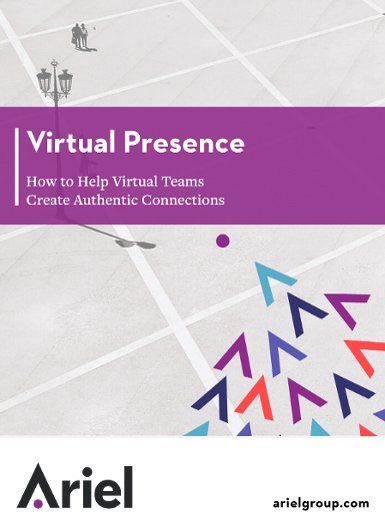5 Tips for Managing People Who Are Older Than You

In 2004, there was a strangely prophetic movie called In Good Company starring Dennis Quaid and Topher Grace about an old company with an older boss (Quaid) getting bought out by a new company with a younger boss (Grace). You may remember it, but you probably don’t—it was one of those movies that was supposed to inspire Friends-like jest but seemed to miss the mark on being laugh-out-loud funny. Why? It was highlighting something that people were actually dealing with—older workers within the workplace having to deal with a manager who was significantly younger than them—and it was too new and too fresh to be considered good comedic material. After all, who likes to hear jokes about a challenging situation they’re dealing with in real life?
That movie came out toward the beginning of the Millennial generation entering the workforce. Now we’re almost 15 years in, and the numbers of employees reporting to younger bosses has continued to increase, meaning that more people are dealing with a younger boss than ever before. In fact, 69% of employees age 55 and older report to someone younger than them according to Harris Interactive, and based on these older employees report significant negative emotions compared to those with older managers. What’s more is that these negative emotions directly impact company performance—which sounds just like the plot of In Good Company.
But fictitious or real, this scenario isn’t just bad for older team members, it can also be stunting for younger bosses. So how can young leaders show and command respect at the same time? Here are a few insights and tips to help you navigate the complexities of leading a multi-generational team.
1. Check stereotypes at the door
As a leader, it’s important that you don’t fall into believing whatever common characteristics you’ve heard about a generation. Why? Because generational stereotypes within the workplace often aren’t true, according to Peter Cappelli, co-author of Managing the Older Worker.
“When workers are beginning their careers, they want different things, especially opportunities to learn and advance,” says Cappelli. “In the middle of their careers, because of family needs typically, they need money and stability; by the end of their careers, they are looking for different things yet again, often personal enrichment.”
How can this affect you as a leader? It indicates that a person’s individual expectations within the workforce are more tied to their stage of life than what year they were born in, blurring the lines between the Boomers, Xers, and Millennials completely. So to better empower your cross-generational team, don’t assign tasks based solely on experience, but geared toward what each individual hopes to achieve moving forward. Experience and strengths will naturally emerge throughout these projects, which will eliminate any initial reliance on stereotypes.
2. Get to know your team
One of the most important managerial skills is learning how to work with people who have different communication or work styles. As a leader, it’s your job to find the common ground between you and your team. While it’s natural to want to work with someone whose style matches yours, that’s not always possible—or the best way to grow.
So how do you get to know everyone on a real level? Start with a conversation with each team member individually, especially if it’s a new relationship. Focus on listening to their wants, needs, and goals for their career, and reciprocate by being open and vulnerable about your own strengths and weaknesses. Through candid conversations, you can tap into your team’s ability to empathize with your role and vice versa. Plus, this level of authenticity will inspire your team toward the objectives that you share, motivating everyone toward a common goal.
3. Balance humility and confidence
People are attracted to confidence—there’s no denying it—and it’s one of the reasons that confident people are often in leadership roles. But how do you make sure you keep this in check with just the right amount of humility, a trait that often comes more easily with experience?
To effectively demonstrate both respect and assertiveness, it’s good to acknowledge when you need advice. Focus on the areas where you’re still seeking to learn, while highlighting where you consider yourself accomplished. You can also share your confidence with your team by helping them identify where they can take risks, accept credit and confidence, and really take hold of their careers. By empowering others with confidence you can also empower yourself—a win-win if there ever was one.
4. Take advantage of training opportunities
Generational learners can have unique learning preferences that are based on their past experiences, education, work history, familiarity with technology, and more. So how do you level the playing field? Invest in group training for all team members that gets everyone on the same page. To make sure the course is as effective as it can be, you have to personalize the learning experience to make sure it engages all your team members, and then continuously reinforce the new training within the regular workday afterwards. All training should be constructive and based not only on personal development, but also on moving the company forward.
Another way to arm yourself with the right tools to manage a multigenerational workforce is to take training yourself. Some companies are already taking steps to empower their leaders with the skills they need to succeed. For example, AT&T offers supervisors a course on managing the cross-generational workforce. Find out if your company offers any similar leadership training and if they don’t, consider pushing for it.
5. Address the elephant in the room if needed
When all else fails, sometimes it’s just easiest to address the matter at hand. While the Journal of Organizational Behavior found that age gaps were less of an issue when companies encouraged employees to keep their emotions in check, occasionally suppressing these negative feelings can backfire and create a bigger problem.
So when it’s necessary, have a direct conversation that’s authentic, empathetic, and constructive with your subordinate. Sometimes it’s a very difficult, uncomfortable conversation to have, but regardless of how it pans out, it is necessary. After all, if a team member ultimately can’t be a functioning member of the team, they’re not the person to help your company advance after all.
At the end of the day, if you’re focusing on doing your job as a leader by actively helping your team succeed and grow, then you will earn the respect that you deserve, regardless of your—or their—age.
